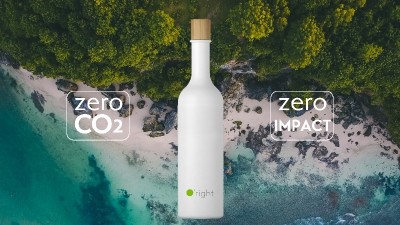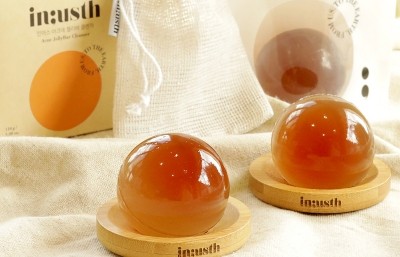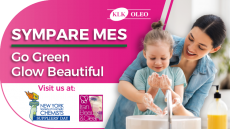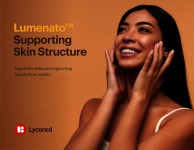Revealed: Key beauty and personal care trends set to shape the APAC industry in 2024
![The consumer and market shifts that will influence APAC beauty in 2024. [Getty Images]](/var/wrbm_gb_food_pharma/storage/images/_aliases/wrbm_large/publications/cosmetics/cosmeticsdesign-asia.com/article/2024/01/08/cosmetic-trends-2024-key-apac-beauty-and-personal-care-trends-set-to-shape-the-industry/17014494-1-eng-GB/Cosmetic-Trends-2024-Key-APAC-beauty-and-personal-care-trends-set-to-shape-the-industry.jpg)
Derma 2.0
In CosmeticsDesign-Asia’s 2023 trend forecast, Maxime De Boni, vice president, L'Oréal R&I North Asia and China, emphasised that efficacy was set to be the “mega mega trend” in beauty.
The persistent demand for performance is not showing any signs of waning; on the contrary, it is poised to intensify, especially with the increasing normalisation of aesthetic procedures.
Botox injections, dermal fillers, microneedling, chemical peels, thread lifts… The list of popular aesthetic procedures goes on and on. According to L’Oréal, it is estimated that around 300 million people have embraced these procedures and it expects this number to accelerate.
“You have a boom of consumers that are turning more and more to dermatologists to meet the very high demand of aesthetic performance. We now estimate that the pool of consumers that turn to them for procedures is likely to double and reach 600 million,” said Myriam Cohen-Welgryn, president of dermatological beauty, L’Oréal Group.
As these procedures become more mainstream, Cohen-Welgryn expects consumers to demand supercharged performance. “The quest for aesthetic performance that is happening is driven by the performance provided by procedures that more and more people want,” she said.
Derma beauty brands have conventionally been the go-to category for people who are afflicted with skin conditions such as acne, eczema, and psoriasis. However, the strong association with dermatologists and science-backed efficacy has naturally pushed derma beauty towards another dimension.
“They see procedures as the very top of the top. There are procedures and then there’s derma beauty,” said Keshan Gunasinghe, vice president of R&D, Asia Pacific, Kenvue.
Kenvue is a spinoff from multinational Johnson & Johnson (J&J) that owns leading Japanese derma beauty brand Dr. Ci:Labo. Like L’Oréal, it has also been closely observing the rise of aesthetic treatments.
“You need something between to procedures so you can prolong the effects. Then three to six months between you’ve got to be prepping the skin the procedure. That’s what’s also really changing,” Gunasinghe said.
In 2023, the brand launched Enrich Microneedle Serum, a product inspired by the boom in aesthetic treatments. The product contains microneedles made of hyaluronic acid and can enhance retinol absorption by 1.5 times while the hyaluronic acid dissolves to form a moisture barrier on the skin.
Michal Kaletka, senior export specialist of Polish skin care company Arkana Cosmetics emphasised us that the developments in aesthetic treatments will be a major influence on the skin care space.
“The trends in aesthetic procedures give us some direction. That’s why cosmetic companies want to be close to them. They want to give the clients something to improve the effects, or something very close to these effects,” said Kaletka.
The company believes procedures and products must work together to offer the consumer more holistic aesthetic solutions.
“One trend we see is that doctors are coming back to cosmetic products. There was a time where people concentrated on very quick effects with fillers and Botox. So, the skin will have no wrinkles but the structure of the skin itself is not good. Now we have to work together with doctors and beauticians to treat the skin inside and outside to have more beautiful skin,” said Izabela Ostrowska, sales and marketing director of Kaletka.
She highlighted the opportunities within the consumer group that do not wish to undergo any procedures.
“There are some people that don’t want to have to do things like injections because they are afraid maybe. So, we are looking for solutions that can give good effects without such procedures.”
Delivery Systems
We can expect that the consumer interest in active ingredients will only grow. ‘Hero’ ingredients such as retinol, hyaluronic acid, or stem cells are guaranteed to draw consumer interest. However, there is another component that industry players believe is set to snatch the spotlight.
“We believe that delivery systems will be a key trend for the future. It’s about providing huge efficacy while using less ingredients. It can make your ingredients more powerful and safer at the same time to reduce potential of allergies,” said Paolo Siragusa, research and innovation manager, Sharon Personal Care.
The company debuted a new emulsifier this year that it claims functions as a delivery system for active ingredients as well. According to the firm, it forms lamellar structures that can create micelles with a strong affinity for the skin – therefore, boasting a high penetration capacity.
This capability facilitates the transportation of active ingredients across the skin barrier with increased effectiveness and selectivity. As such, the active components within the formulation can reach sub-epidermal layers with greater efficiency, allowing for a more economical use of ingredients in formulations.
Delivery systems are crucial to enhancing the penetration, stability, and effectiveness of active ingredients in skin care products. They are key when it comes to working with tricky ingredients such as retinol.
“I love retinol. I’ve worked with it for many years in the lab formulating with it, but it’s a terrible ingredient to work with. It’s very unstable. Light degrades it, heat degrades it, air degrades it. In order to deliver fantastic efficacy, you need to get it into the skin,” said Gunasinghe.
He highlighted that Dr. Ci:Labo’s delivery system innovations have been key to its retinol “breakthroughs”.
Its new Advanced Skin Science Retinol Cream, which debuted in 2023, makes use of a liposome encapsulation technology to improve retinol penetration and deliver it to the target area. Additionally, it enables retinol to be slowly released over time.
“This technology controls the dose of retinol, it ensures that the concentration of retinol is not too high, which could cause [negative effects],” explained Cecilia Li, head of clinical, translational science APAC R&D, Kenvue.
Today, some delivery systems employed in cosmetics include liposomes, nanoparticles, microspheres, and transdermal patches. Increasingly, exosomes are gaining attention in the cosmetic field due to their potential regenerative properties.
Exosomes are small, membrane-bound vesicles that are released from cells. They play a role in cell-to-cell communication by carrying proteins, nucleic acids, and other molecules from one cell to another.
In October last year, Arkana announced its new range of exosome-powered formulations.
It uses its ExoComplex, natural cellular messengers that promote skin regeneration and vitality, which it claims to be an “advanced therapy” that can be paired with aesthetic treatments. It targets a broad range of skin types and concerns from ageing to sensitive skin.
“Exosomes are at the top of the pyramid. It’s a very hot topic because we can have very good results without any injections or surgeries. The are really so small and can go inside the cells and rebuild activation. It also has a lot of amino acids, so they give good ingredients to the cells. It is a great support to medical aesthetic treatments for regeneration,” said Ostrowska.
Kick-off 2024 by discovering the trends shaping the next generation of beauty consumers. Join us at the Beauty Forward 2024 digital summit taking place January 29 to 31. Register here for FREE now.
Accessible luxuries
In 2023, cosmetic companies continued to observe a less confident beauty consumer. As we move forward to the new year, it seems that the shadow of a fluctuating economy, rising political turmoil, and the persistent aftermath of the COVID-19 pandemic will continue to cloud consumer sentiment.
As consumers continue to feel the squeeze, we can expect them to make smarter purchasing decisions such as buying high quality products for the best value, said Brandyn Muegge, president and founding partner of US-based Bespoke Beauty Brands (BBB).
“People are not going to stop buying cosmetics no matter what. There are a lot of luxury brands out there, but what we’re finding out is that people want to get a lot for their money. They may not want to pay $48 for a lipstick,” she said.
Over the past year, we have observed mass market brands perform exceptionally well by implementing premiumisation strategies.
In China, NIVEA successfully expanded its business the despite challenging market conditions. The focus on high efficacy and value, particularly with its Luminous630 products, contributed to an increased market share and historic highs in average selling prices for facial care products.
Similarly, Indian fast-moving consumer goods (FMCG) firm Hindustan Unilever (HUL), a, has successfully pursued a strategy of premiumisation within its beauty and personal care brands such as Ponds, Dove, and Lakme. These brands played a significant role in this effort, contributing to a 10% growth in the division for the quarter ending March.
Muegge has over 25 years of experience in the beauty industry. Previously, she served as senior vice president of sales for NYX Cosmetics and stayed with the brand through its acquisition by L’Oréal in 2014. She said that the consumers idea of luxury has changed, and that true quality is not defined by price.
“They know a lipstick doesn’t have to be $48 to have beautiful packaging and great formulas.”
BBB was founded in 2019 by Toni Ko, founder of NYX Cosmetics. It has launched brands such as KimChi Chic Beauty and Jason Wu Beauty which have a presence in retail chains such as CVS and Target. They range from approximately USD7 to USD30.
According to Muegge, consumer response to both brands have been very positive.
“It’s just a matter of where your priorities are. For us, we want it to be accessible and affordable, but we also want it to be high quality, so we have to find that balance. It’s super important to us that product perform and sometimes people are surprised by the quality they get with our products. They are surprised by our pay off because we focus a lot on that.”
The company is keen to expand both brands in Asia, where it believes it can fill a gap between mass-market affordability and the prestige associated with luxury brands.
“Asia is super interesting for us. Jason is from Taiwan and Kimchi is from Korea. That’s a huge motivation for us to get distribution in Asia. We have distribution in the Philippines and are about to be available in Taiwan. We are also working on China; we’re just getting all our documentation and trademarks in place.”
T-beauty
As the beauty manufacturing hub of South East Asia, Thailand is known for its expertise in formulating and producing beauty products. Local brands such as Karmart and Mistine have gained prominence overseas for their affordable yet high-quality products.
Karmart believes that with its manufacturing expertise and budding R&D landscape, Thai beauty – or T-beauty – is positioned as a compelling contender as the next beauty leader.
“We think that the Thai cosmetics industry is going to become the next leader over the next 10 years. Over the past 10 years, we’ve been dominated by the Korean wave, but we’ve seen a lot of the K-beauty players backing out recently. This is giving rise to opportunities for Thai companies,” said Kat Wei, regional director of business development, Karmart.
She added that Thai consumers’ experimental attitudes towards beauty makes it more likely for Thailand to become a “striking point” for the birth of new trends.
Wissanee Ruangsorn, president of personal care, Asia Pacific, Brenntag, said the essence of Thai beauty was characterised by its celebration of freedom.
“Thailand is a very free country, especially in APAC, its known for its freedom and is very adaptable,” she said.
She added that the Thai beauty consumer is known for their openness and willingness to try new innovations. Their curiosity and enthusiasm have created a culture of experimentation and self-expression. These values are important to younger consumers like Generation Z.
“In Thailand, we used to follow J-beauty, K-beauty but now the younger generation of Thais want their own beauty. They want to have that freedom,” said Ruangsorn.
Ruangsorn credited the globalisation of Thai culture to Lisa, a member of K-pop group BLACKPINK who is Thai. “Lisa is a great ambassador for Thailand. She has been a great influence for Thailand around the world and for T-beauty.”
Thailand is a major beauty leader in the SEA region and its influence is extending beyond to countries like China.
Mistine, the flagship beauty brand of Thai company BetterWay, told us that its had become the number one sunscreen brand in China in 2023. This was a milestone for the company, which launched in China in 2016.
“Our sunscreens – our star products – are now the number one sunscreen brand in China in volume and in value. Because it is made in Thailand, a very hot and humid country, so our formula has all the properties like oil control and water-resistance. This is also why our mascaras and eyeliners are good. Our foundations are lightweight and long-lasting, this is why our base makeup is doing better and better,” said Jackey Ho, brand and business development director, Mistine China.
Ho attributed the success of the brand to Gen Z consumers, echoing Ruangsorn’s views that Thai beauty’s bold beauty style resonate strongly with this cohort.
“Our consumers are post-millennials. They are very young; they have a lot of energy and they value uniqueness. Our makeup is very different from the style of Japan and Korean brands which use a lot of nude colours. We have bold looks, a strong focus on eye makeup with strong eyeliner and strong eyebrows. There’s a focus on contouring and highlighting to make the face more V-shaped.”
In addition to product performance, Ho highlighted the importance of using packaging and design to stand out on social media platforms like Douyin – TikTok’s China counterpart – to attract Gen Zs.
The company has made substantial investments in packaging and design, employing private moulding for that unique touch. The brand showcased two such designs at Cosmoprof Asia 2023 that were designed to capture the attention of Gen Z.
The first was the Thai Latte Lip Glaze collection, which was developed in collaboration with top Chinese influencer, Austin Li Jia Qi. The product features an attention-grabbing packaging design which features a fidget spinner-inspired component.
It also highlighted its new Mistine Air Cushion. The cushion compact case is available in six colours to cater to consumers’ individual colour preferences.
Femcare
Societal attitudes towards women's health are evolving, fostering a greater openness to discussions about feminine hygiene needs.
The category expansion is also supported by a broader movement towards women's empowerment. As women assert their autonomy and seek products tailored to their unique needs, fem care continues to gain momentum as a significant and evolving market in the region.
This is further underscored by the rise of femtech, which has provided innovative tools for menstrual tracking, fertility management, and reproductive health, aligning with the broader trend of embracing digital healthcare solutions.
The intersection of cultural shifts, increased awareness, and the integration of technology through femtech has not only shaped the fem care landscape in Asia but has also underscored the region's receptivity to modern approaches in addressing women's health needs.
Rael is a femcare brand known for offering a range of feminine care products, including organic cotton menstrual care products. It was founded in 2017 by chief executive Paik Yanghee, chief commercial officer Aness An, chief product officer Binna Won.
In addition to menstrual care products, Rael has expanded its product line with beauty and personal care items. This includes vaginal washes and wipes, as well as skin care products that target concerns such as hormonal acne.
“We started on this path based on the needs of women. Our mission became about the holistic cycle care for women. We expanded to feminine washes and wipes and then expanded to skin care, especially for breakouts and acne due to hormonal changes. We are now launching supplements in Korea for women for vaginal health, menstrual care, and urinary tract health,” said Lee Yeonjoo, marketing manager, Rael.
Lee also highlighted the brand’s Inner Care Gel, an FDA-approved medical device that claims to promote vaginal health with ingredients such as lactate and hyaluronic acid.
“More women are paying close attention to vaginal health and this product is used after their period to cleanse and balance the pH. It’s honestly doing quite well on Olive Young,” said Lee.
According to Lee, the brand is growing more than 20% year-on-year as the company continues to expand into new categories. It believes the whole segment has room for more players and more innovation as more consumers increasingly start to prioritise their health.
The biggest hurdle, however, is consumer awareness and education. Lee highlighted that many misconceptions about feminine hygiene or hormonal skin concerns still persists.
“We still get people who ask us why we have skin care products when we sell sanitary pads. That gives us an opportunity to educate about breakouts due to our hormonal changes and explain why our patches and gel can help calm down the skin.”
Moving forward, the company intends to launch more skin care products in Korea early next year. It is also exploring the option of launching its supplement products in the US as well.
![Beiersdorf’s chief executive is “optimistic” about getting China’s regulatory approval for its hero ingredient W630. [NIVEA]](/var/wrbm_gb_food_pharma/storage/images/_aliases/wrbm_medium/publications/cosmetics/cosmeticsdesign-asia.com/headlines/brand-innovation/beiersdorf-closing-in-on-china-s-approval-for-brightening-ingredient/17241044-1-eng-GB/Beiersdorf-closing-in-on-China-s-approval-for-brightening-ingredient.jpg)


![Our most-read stories on formulation and science. [Getty Images]](/var/wrbm_gb_food_pharma/storage/images/_aliases/wrbm_medium/publications/cosmetics/cosmeticsdesign-asia.com/headlines/formulation-science/skin-science-top-five-stories-on-cosmetics-science-and-formulation11/17095787-1-eng-GB/Skin-science-Top-five-stories-on-cosmetics-science-and-formulation.jpg)






![[Getty Images]](/var/wrbm_gb_food_pharma/storage/images/_aliases/wrbm_tiny/publications/cosmetics/cosmeticsdesign-asia.com/china/china-focus-latest-developments-in-china-s-booming-beauty-market22/17370102-1-eng-GB/China-focus-Latest-developments-in-China-s-booming-beauty-market.jpg)
![YSL's LoveShine launch has sparked a demand surge in Japan. [YSL]](/var/wrbm_gb_food_pharma/storage/images/_aliases/wrbm_tiny/publications/cosmetics/cosmeticsdesign-asia.com/article/2024/04/24/ysl-loveshine-launch-propels-lip-gloss-sales-to-record-highs-in-japan-since-2020/17372064-1-eng-GB/YSL-LoveShine-launch-propels-lip-gloss-sales-to-record-highs-in-Japan-since-2020.jpg)
![There is significant scope for innovation and new launches in the hair repair sector, especially in soaring markets such as China. [Getty Images]](/var/wrbm_gb_food_pharma/storage/images/_aliases/wrbm_tiny/publications/cosmetics/cosmeticsdesign-asia.com/article/2024/04/24/croda-zeroes-in-on-hair-repair-solutions-as-damage-hair-concerns-surge-in-markets-like-china/17362731-1-eng-GB/Croda-zeroes-in-on-hair-repair-solutions-as-damage-hair-concerns-surge-in-markets-like-China.jpg)



![Lubrizol has extended its partnership with C-beauty major PROYA. [PROYA]](/var/wrbm_gb_food_pharma/storage/images/_aliases/wrbm_tiny/publications/cosmetics/cosmeticsdesign-asia.com/headlines/brand-innovation/lubrizol-bullish-on-potential-of-c-beauty-growth-potential/17362515-1-eng-GB/Lubrizol-bullish-on-potential-of-C-beauty-growth-potential.jpg)


